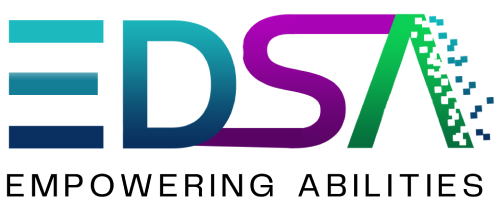In this way, you can choose the right NDIS support
The fastest path to choosing the right NDIS support is to begin with three to five plain-English goals: prepare simple meals independently, travel safely to TAFE twice a week, or reduce falls at home. Map each goal to the relevant funding category (Core, Capacity Building, Capital) so you can see which supports actually move the needle. This flips the process—goals drive the service mix, not the other way around.
Build a smart shortlist of local providers.
Adelaide has a large ecosystem of NDIS providers Adelaide, so narrow the field with four filters:
- proximity (within 30 minutes or home-visit options)
- exact service match (e.g., OT for home mods, speech for AAC, psychosocial recovery coaching),
- realistic availability (first appointment and ongoing cadence)
- accessibility (interpreters, Auslan, Easy Read, sensory-friendly spaces, telehealth).
Shortlisting with these filters prevents you from wasting time on providers who can’t deliver what you need now.
Make support coordination work for you.
Great support coordination turns a plan into action. A strong coordinator will explain budget categories in plain language, present at least two options for each need, book time-boxed trials (four to eight weeks), and measure progress against your goals. Ask about their escalation path, average response time, and how they document outcomes for plan reassessment. If a coordinator feels like a gatekeeper rather than a guide, you can switch—choice and control are built into the NDIS.
Decide if plan management suits your style.
With plan management, a plan manager pays invoices, helps you track budgets, and (often) allows you to use both registered and unregistered providers within price limits. Look for fast payment times, a clear portal or app, proactive alerts to prevent overspending, and human support via phone or email. Good plan managers reduce admin stress and keep your funding working where it matters most.

Compare providers on evidence, not brochures.
When providers look similar on paper, ask practical questions:
- What recent results have you achieved with participants like me?
- How do you set goals and report progress—every 8–12 weeks or only at review time?
- If our therapist leaves, how do you maintain continuity?
- What are your cancellation and travel policies—can I bundle appointments to save budget?
Clear, specific answers signal a provider that’s organised and outcome-focused.
Prioritise cultural safety and communication.
Skills matter—but so do rapport, language, and respect. Check whether staff reflect your cultural or linguistic needs, whether they communicate without jargon, and whether they honour preferences around gender for personal care. Ask for Easy Read materials or translated consent forms if that’s helpful. A good provider will meet you where you are.
Mix 1:1, group, and community supports for a moment.
Progress often accelerates when you combine modes. Use individual therapy for targeted skills; group sessions to practice in social settings; and community access to apply skills in real life—shopping, sport, volunteering. Ask how therapists will brief your support workers so strategies learned in clinic (e.g., transfer techniques, AAC prompts) show up in everyday routines.
Budget smarter: roster by routine, not by worker
Instead of booking two hours with Sam, roster by outcomes: AM routine 60 min + meal prep 30 min + community access 90 min. This structure helps the provider send the best-matched worker for each task and makes it easier to swap shifts without losing continuity. Bundle travel where possible (back-to-back appointments on the same day) to reduce non-face-to-face charges.
Turn therapy into daily habits.
Ask allied health to produce one-page how-to sheets (transfers, mealtime safety, sensory breaks) that support workers can follow. Build independence into support: today, the worker lays out clothes; next month, you choose between two options; later, you complete upper-body dressing while the worker assists with fastenings. Small habit loops free hours for other goals over time.
Track progress so your next review is easier.
Keep simple notes: what changed, what stayed hard, and which strategies worked. Save key emails, shift notes, and therapist reports in one folder (or your plan manager’s portal). At reassessment, this evidence shows how supports delivered real outcomes—strong proof for keeping or adjusting budgets.
Red flags to avoid
Be cautious of providers who promise start dates without confirming clinician capacity, who can’t explain travel/cancellation charges, or who only offer their preferred partners. Pressure to commit to a long-term deal before a trial block is another warning sign. You’re entitled to compare and choose—use it.
A 2-week decision pathway you can copy
- Days 1–2: Write goals and must-haves (access needs, preferred days, languages).
- Days 3–4: Build a shortlist of 4–6 NDIS providers in Adelaide that match those filters.
- Days 5–6: Call or email each with the same questions (capacity, approach, reporting, costs).
- Days 7–10: Book two first appointments or trial blocks; confirm service agreements in writing.
- Days 11–14: After sessions, score providers on fit, communication, and early progress; choose the best and set an 8-week review date.
FAQs
Can I change providers mid-plan? Yes. Give required notice, ensure handover of reports, and update your coordinator/plan manager.
Do I need both support coordination and plan management? Not always, but many participants find the combo reduces admin and keeps services moving.
What if I’m on a waitlist? Ask for interim options—group sessions, telehealth, or a short-term provider—so progress doesn’t stall.
The bottom line
Choosing the Right NDIS Support is a process, not a guess. Lead with clear goals, shortlist smart, confirm capacity and reporting, and use support coordination and plan management to keep everything moving. When providers measure outcomes, respect your preferences, and communicate clearly, your supports turn into real-world wins—safer routines, stronger skills, and more confident days in Adelaide.


